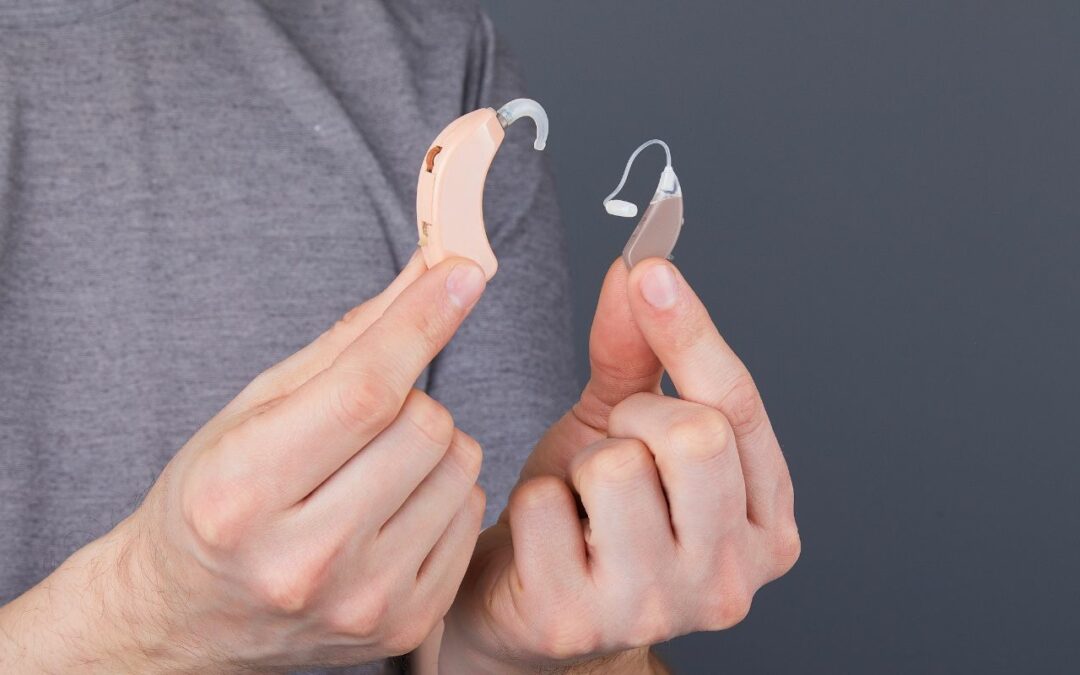A common question people often ask about hearing aids is how often they should update or replace them. The answer to this important question is not straightforward and depends on a range of factors. While some people can have no issues with their device for years, some may find that their hearing aid requires more maintenance work or adjusting over time. There are a few crucial factors to think about when approaching updating your hearing aids including your hearing and lifestyle needs, interest in newer hearing technologies, and your budget. Some signs that could indicate it is time to update your hearing aids include:
- Your hearing aids aren’t working as well. You will become an expert on your hearing aids which means that you will likely notice when they aren’t working as well. Hearing aids, similar to most things you use and wear everyday, can be impacted by daily wear and tare. Not only are hearing aids exposed to various weather conditions like humidity and rain, but also substances that can accumulate in the ears like earwax and dirt. These substances can build up on hearing aid devices which is why hearing aid maintenance is so important. Exposure to these substances can damage hearing aid components, causing parts to become clogged or corroded over time. This prevents hearing aids from absorbing and processing speech as well as sound effectively.
In addition to the elements building up on hearing aids, there are other ways hearing aids can become damaged. This includes cracks or breakages of tubing, hooks, battery compartment etc. A few signs to watch for that indicate your hearing aids are not working as well include:
- There is feedback noise, whistling noises.
- Sounds are slurred or muffled.
- Your batteries seem to not last long adn you are replacing them often.
- Your device randomly powers off.
Sometimes these issues can be repaired by your hearing healthcare provider and other
At times, depending on the issue, it may be time for a completely new hearing aid.
- Your hearing needs have changed. Your hearing health needs can change over time. Hearing loss exists on a spectrum, ranging from mild to more profound. The degree of your impairment can change and also be different from one ear to the other. This highlights the importance of having your hearing assessed regularly so that you track any changes you may experience. If your hearing aid seems to not be as comfortable or isn’t delivering sound in ways that support your hearing, you should have your hearing aid and your hearing health evaluated. You can also experience physical changes to the shape of your ear which could require adjusting your device.
- You are interested in the latest hearing technologies. Similar to most electronic devices, hearing aids continue to experience exciting innovations. There is such a wide range of hearing aid styles, features, adn technologies that are designed to offer the best possible hearing experience. This includes sleek and contemporary aesthetics that make hearing aids exciting pieces of wearable technology. There are also numerous features that enhance sound quality and connectivity, allowing hearing aids to be easily integrated into daily life. This includes Bluetooth connectivity, digital noise reduction, voice recognition, access to a virtual assistant, smartphone app to manage settings, and much more. If you are interested in these technologies then it may be an opportunity to invest in updating your hearing aids.
- Major lifestyle factors have changed. LIfestyle factors are an important consideration that inform the hearing aid that will work best for you. These factors include the types of environments you regularly navigate, the activities you participate in, the type of climate you live in etc. Your hearing aids have to support your hearing in all of these contexts. So if any of these major lifestyle factors change, then it is important to consult with your hearing healthcare provider to determine if there is another device that can best meet your needs.
Contact us today if you are thinking about updating your hearing aids and would like to know more about your options. Our team is invested in helping you navigate your options and discussing the hearing technologies that you could benefit from.


